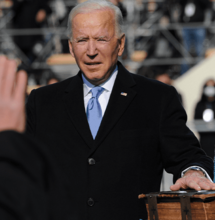Medical Marijuana Patients Can't Bring Up Drug's Medical Use in Federal Trial

Family of patients in WA not able to defend themselves against drug trafficking charges
Family of patients in WA not able to defend themselves against drug trafficking charges
| Larry Harvey and Rhonda Firestack-Harvey were indicted in 2013 for growing marijuana on their property in rural Washington. [Credit: Harvey family photo] |
SOURCE: www.huffingtonpost.com
AUTHOR: Matt Ferner
A family of medical marijuana patients in Washington state will not be able to defend themselves against drug trafficking charges by presenting evidence that their state-legal marijuana grow was for personal medical use.
"In regard to the medical marijuana evidence, I'm still persuaded that it will confuse the jury," U.S. District Judge Fred Van Sickle of the Eastern District of Washington said during a pretrial hearing teleconference on Monday. "I don't think [medical marijuana evidence] is relevant."
Van Sickle's ruling should come as no surprise. During a pretrial hearing in May, the judge had ruled that the five defendants, who face trial next month, could not use an "affirmative defense" that their cannabis plants were grown for medical purposes. With Monday's ruling, the judge said that the defendants can't bring in any physical evidence that references medical marijuana use either and that Washington state law on medical marijuana can't be discussed before the jury.
Because marijuana use is illegal under federal law (with a few rare exceptions), federal courts generally don't allow evidence that the drug may have been taken as medicine -- even when medical marijuana is permitted by state law, as it has been in Washington since 1998. Larry Harvey, 70; his wife, Rhonda Firestack-Harvey, 55; their son Rolland Gregg, 33; daughter-in-law Michelle Gregg, 35; and family friend Jason Zucker, 38, sought to present evidence that the marijuana they grew was, in fact, legal under state law, doctor-recommended and appropriate for each family member's condition.
"The jury will never hear that there was a sign [at the grow site] for medical marijuana," lawyer Douglas D. Phelps, who represents Rolland Gregg, said during Monday's hearing. "They'll never hear that the defendants had a use for the marijuana that was medicinal. They'll never hear how they intended to use the crop, the purposes that they would use it for or that the doctors believed that the amounts they were growing was consistent with their medical necessity."
The defendants contend they were growing about 70 marijuana plants for their personal use at the Harveys' rural home near Kettle Falls, Washington. State law enforcement authorities had removed about one-third of the plants but otherwise left the pot patch alone after a 2012 raid.
But federal law enforcement responded much more harshly after their raid the same year. The federal government charged each defendant with six felonies, including manufacturing, possession and distribution of marijuana and possession of a firearm in furtherance of drug trafficking.
Their lawyers said the family kept multiple guns for hunting and defense at their home, which lies in the wilderness of northeast Washington state near the U.S.-Canadian border. They have encountered black bears, cougars and coyotes at their front door on several occasions, according to the lawyers.
Federal prosecutors argue that the presence of firearms shows the defendants were involved in drug trafficking.
Under federal law, marijuana remains a Schedule I substance, which the Drug Enforcement Administration says has "no currently accepted medical use." Yet a number of studies over the years have shown the medical potential of cannabis, from fighting cancer to controlling blood sugar. There have also been multiple attempts to reschedule the drug since the 1970s.
"One must reasonably conclude that there is an accepted safety for use of marijuana under medical supervision," said a motion filed by the Harvey family's attorneys that prompted Monday's hearing. "To conclude otherwise, on this record, would be unreasonable, arbitrary, and capricious." The motion was quoting then-DEA Administrative Law Judge Francis Young's response to a 1988 petition to reschedule marijuana.
"Decades after this judicial acknowledgment of the irrationality of classifying marijuana as a Schedule I controlled substance, the possession and cultivation of this plant remains subject to the harshest criminal penalties authorized under the Controlled Substances Act of 1972," the Harvey family's motion said. "Despite the federal prohibition, science has forged ahead to prove Judge Young correct, and in the twenty-first century, cannabis has been proven to be a harmless yet effective medication for treating, and possibly preventing, serious illnesses."
At the DEA's own behest, the Food and Drug Administration is currently considering loosening federal regulation of marijuana. However, in its latest guidelines regarding cannabis, published Friday, the FDA states that it still "has not approved marijuana as a safe and effective drug for any indication" despite "significant interest in the potential utility of marijuana for a variety of medical conditions."
Ultimately, Judge Van Sickle disagreed with the Harvey family's lawyers and barred any mention of medical marijuana or the relevant Washington state laws. The trial is expected to begin at the end of July. The defendants face maximum penalties that range from 40 years to life in federal prison.
Currently, 22 states and the District of Columbia have legalized marijuana for medical use, with New York poised to be the 23rd. Nine other states -- Alabama, Florida, Iowa, Kentucky, Mississippi, South Carolina, Tennessee, Utah and Wisconsin -- have legalized CBD oil, a non-psychoactive ingredient in marijuana frequently used to treat epilepsy, for research or limited medical purposes.



